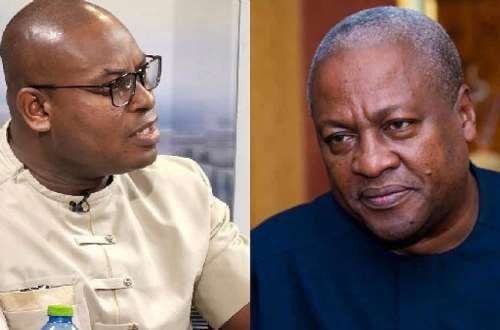Richard Ahiagbah, the National Communications Director of Ghana’s opposition New Patriotic Party (NPP), has launched a scathing critique of the incumbent government’s flagship “24-hour economy” policy, branding it a deceptive ploy designed to garner votes rather than a genuinely viable economic strategy. Ahiagbah argues that the policy, spearheaded by former President John Dramani Mahama and the National Democratic Congress (NDC), lacks the necessary groundwork and planning for successful implementation. He contends that the government should instead prioritize the continuation of the NPP’s “One District, One Factory” (1D1F) initiative, a program he believes offers tangible solutions to Ghana’s pressing production and employment challenges. Ahiagbah’s criticism underscores the ongoing political tussle between the NPP and NDC, with both parties vying for public support and presenting contrasting economic visions for the nation.
The 24-hour economy policy, officially launched on July 1st, envisions a round-the-clock economic activity fueled by both public and private sector investments. Presidential Advisor Goosie Tanoh has estimated the policy’s cost at approximately $4 billion, with the government committing between $300 million and $400 million as seed funding to attract private sector participation. The policy aims to stimulate economic growth, create employment opportunities, and enhance Ghana’s competitiveness in the global market. However, Ahiagbah has questioned the policy’s feasibility and criticized the lack of thorough scrutiny, particularly from the media, during its initial proposal. He alleges that the media, instead of critically assessing the policy’s viability, provided a platform for the NDC to promote what he terms a “scam” to the Ghanaian public.
Ahiagbah’s contention revolves around the perceived lack of transparency and concrete plans for the implementation of the 24-hour economy policy. He questions the allocation of the $4 billion budget, raising concerns about potential mismanagement and lack of accountability. He contrasts this with the 1D1F initiative, which he portrays as a more practical and grounded approach to boosting local production and creating jobs. The 1D1F program, launched by the NPP during its previous tenure, aims to establish at least one factory in each of Ghana’s districts, promoting industrialization and economic diversification at the grassroots level. Ahiagbah’s advocacy for the 1D1F program reflects the NPP’s broader economic strategy focused on local production, import substitution, and job creation.
The core of Ahiagbah’s argument rests on the belief that the 24-hour economy policy is a politically motivated maneuver rather than a well-thought-out economic strategy. He accuses the NDC of using the policy as a campaign tool to attract votes without having a clear roadmap for its implementation. He criticizes the media for allegedly failing to hold the government accountable and for not thoroughly examining the policy’s feasibility before its launch. By raising these concerns, Ahiagbah seeks to portray the NPP as a more responsible and pragmatic alternative to the NDC, emphasizing the 1D1F initiative as a tangible example of their commitment to economic development.
Ahiagbah’s public criticism of the 24-hour economy policy highlights the ongoing political and economic debate in Ghana. The NPP and NDC, the two dominant political forces, present contrasting visions for the country’s economic future. The NDC, currently in power, advocates for policies like the 24-hour economy to stimulate growth and create jobs. The NPP, on the other hand, champions initiatives like the 1D1F, emphasizing local production and industrialization. This ongoing debate underscores the challenges facing Ghana’s economy, including unemployment, industrial underdevelopment, and the need for sustainable economic growth.
The controversy surrounding the 24-hour economy policy underscores the importance of transparency, accountability, and robust public discourse in policy formulation and implementation. Ahiagbah’s critique, whether politically motivated or genuinely concerned, raises important questions about the policy’s feasibility and potential impact. The government’s response to these concerns, and the subsequent public debate, will play a crucial role in shaping Ghana’s economic trajectory in the coming years. The effectiveness of both the 24-hour economy policy and the 1D1F initiative will ultimately be judged by their tangible impact on the lives of ordinary Ghanaians, particularly in terms of job creation and economic prosperity.


